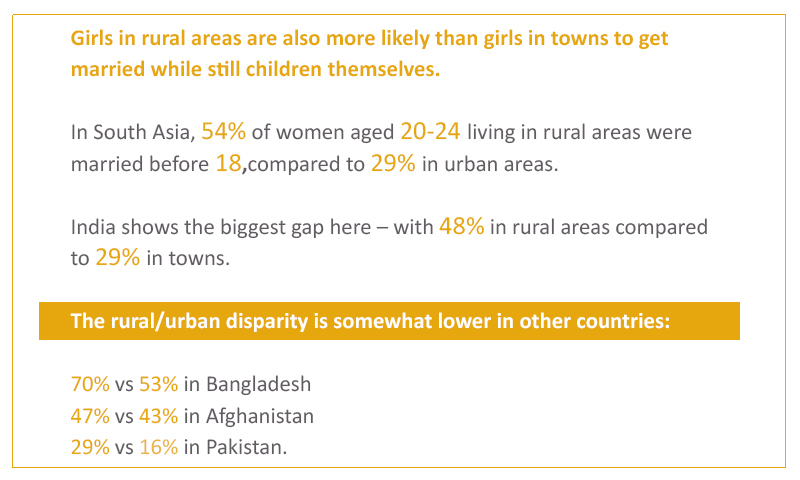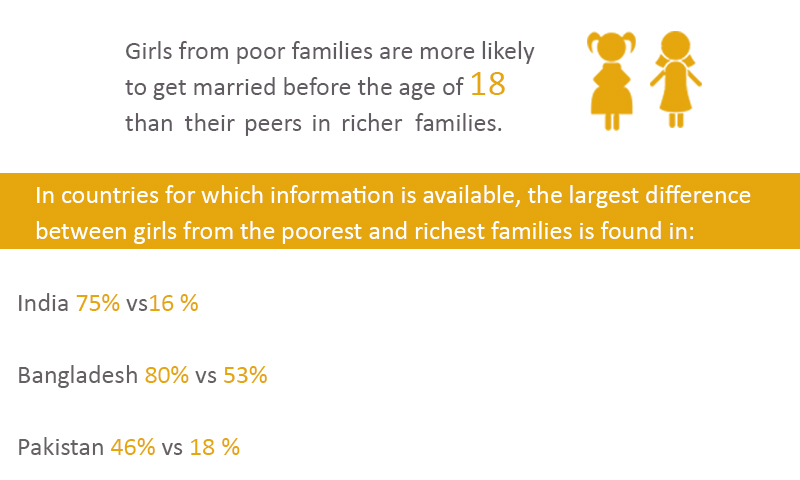NEW DELHI: Nearly half of all girls in South Asia marry before they turn 18, according to a United Nations report that lays bare what it calls “glaring inequalities”.
The report, published by the UN children's agency Unicef on Thursday, also revealed that more than a million newborn babies still die every year in the region, often due to inadequate healthcare.
 |
| Source: Unicef 2014 |
“South Asia continues to be one of the riskiest places in the world to become pregnant or give birth, with the second highest number of maternal deaths worldwide,” said Karin Hulshof, regional director for Unicef in South Asia.
“Far too many children get married, and far too many girls are never born.”
Sex selection — where parents choose to terminate a pregnancy if they discover their unborn child is a girl — remains prevalent in parts of South Asia, and particularly in India, Unicef said.
Also read: Married off for 'honour': Pakistan's child brides
“Gender-biased sex selection favouring boys is a manifestation of deeply embedded social, economic, cultural and political factors that discriminate against women and girls,” said the report, adding such practices could lead to girls being trafficked for sex or forcibly married.
 |
| Source: Unicef 2014 |
One in five girls are married before the age of 15, giving the region the highest rates of child marriage in the world, the report said.
In Bangladesh, which has the highest rate in the region, two out of every three girls marry before they reach adulthood, putting them at risk of sexual exploitation and domestic violence.
The report also highlighted the impact of chronic malnutrition on children in South Asia, with nearly 40 per cent of all under-fives suffering from stunted growth.
More on this: Curse of childhood marriage
Rates of stunting — a condition that causes lasting damage and kills around a million children every year worldwide — have fallen from around 60 per cent in 1990 to just under 40 per cent today.
If nothing changes, 130 million South Asian girls will marry or enter a union between 2010 and 2030. This is close to 18,000 girls per day, according to UNFPA.
But there are significant regional disparities, and nearly half of all Indian under-fives — over 60 million children — have stunted growth.
 |
| Source: Unicef 2014 |
The report, released to mark the 25th anniversary of the Convention on the Rights of the Child, said the last quarter-century had seen significant improvements in the lives of children in all eight countries of South Asia — Afghanistan, Bangladesh, Bhutan, India, the Maldives, Nepal, Pakistan and Sri Lanka.
But it said persistent gender discrimination was undermining progress, while government spending on health, education and social protection remained far below that of other regions.














































